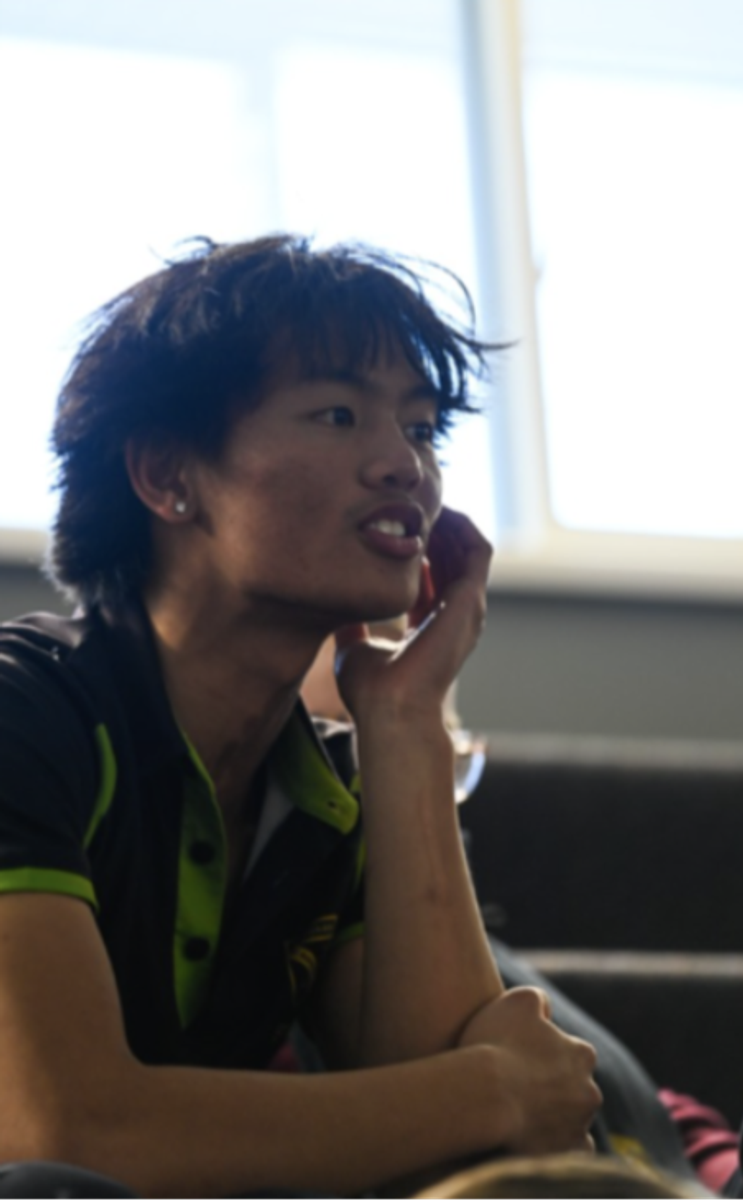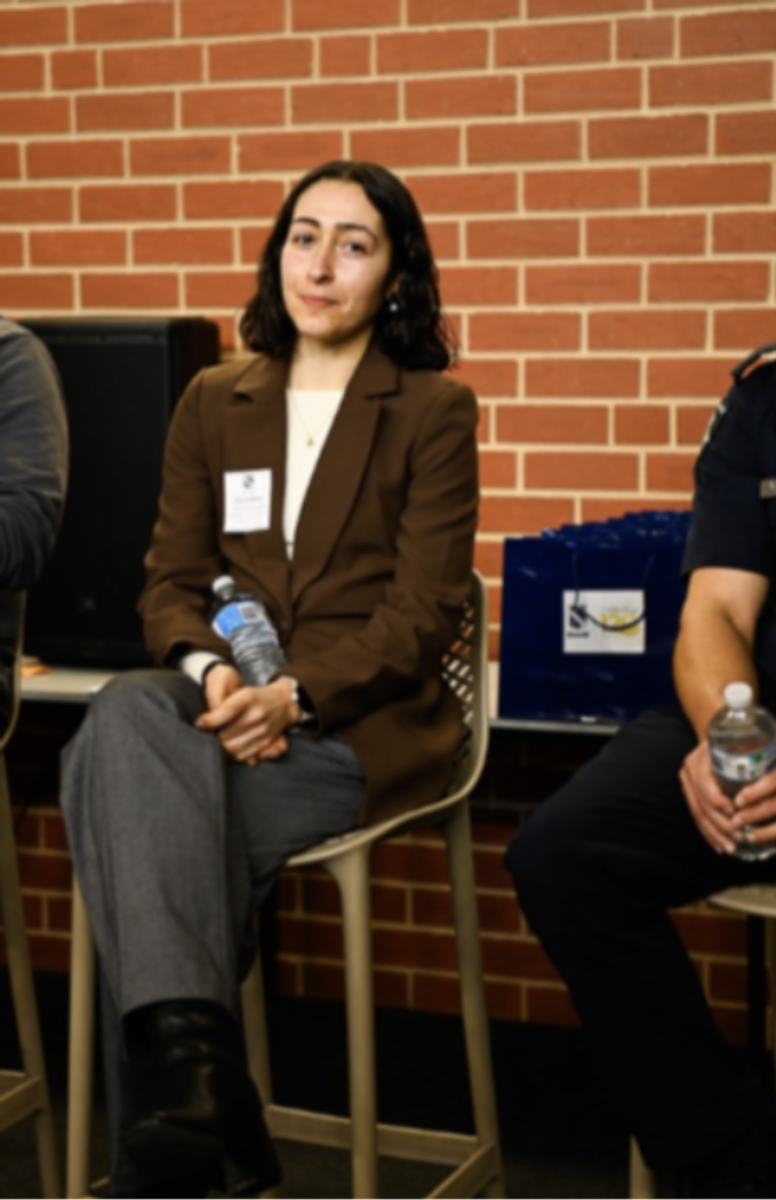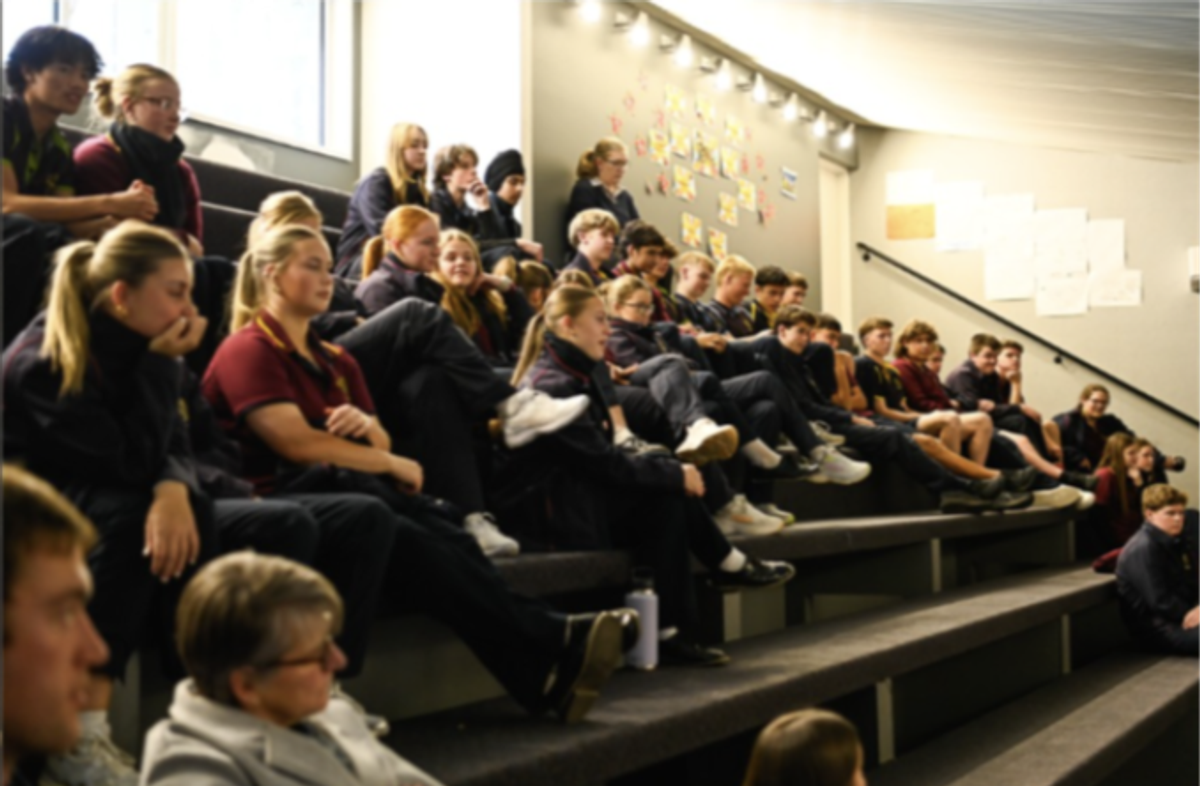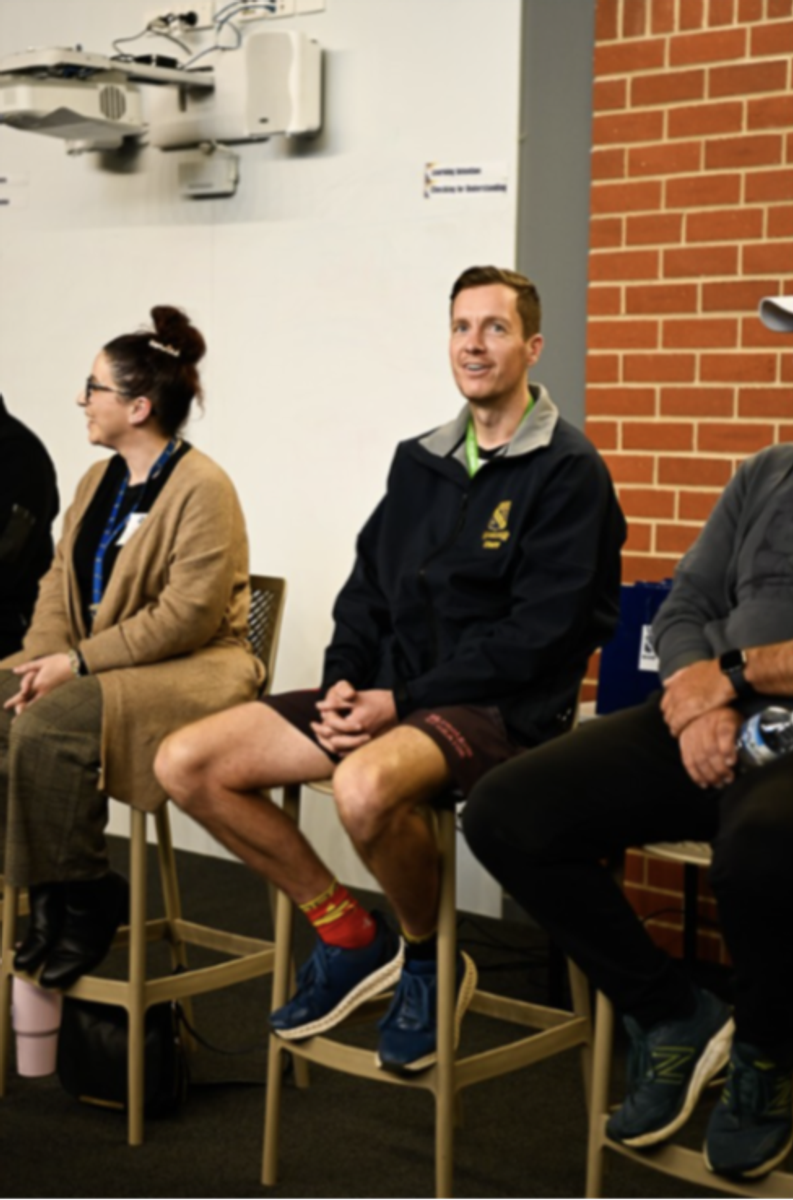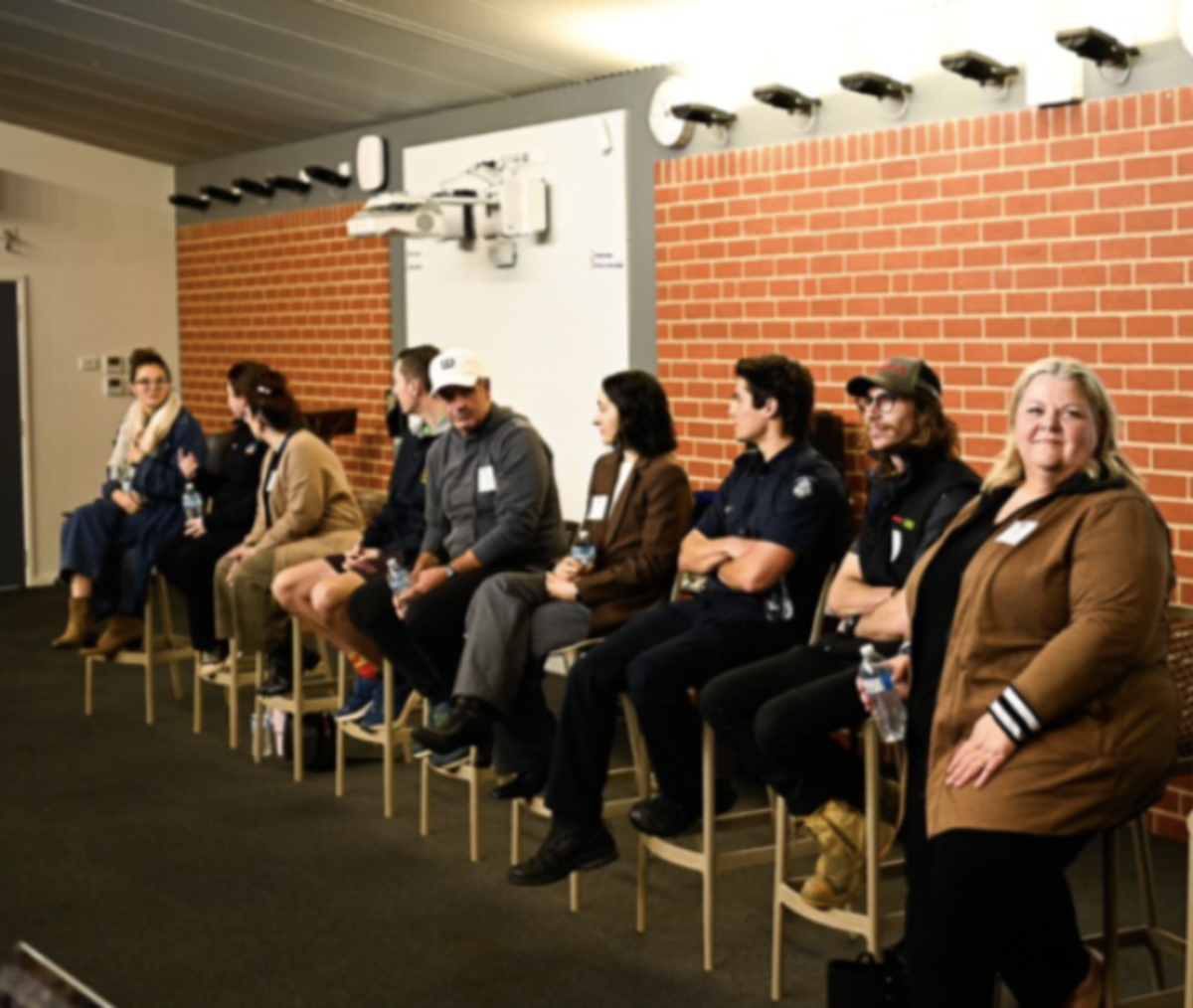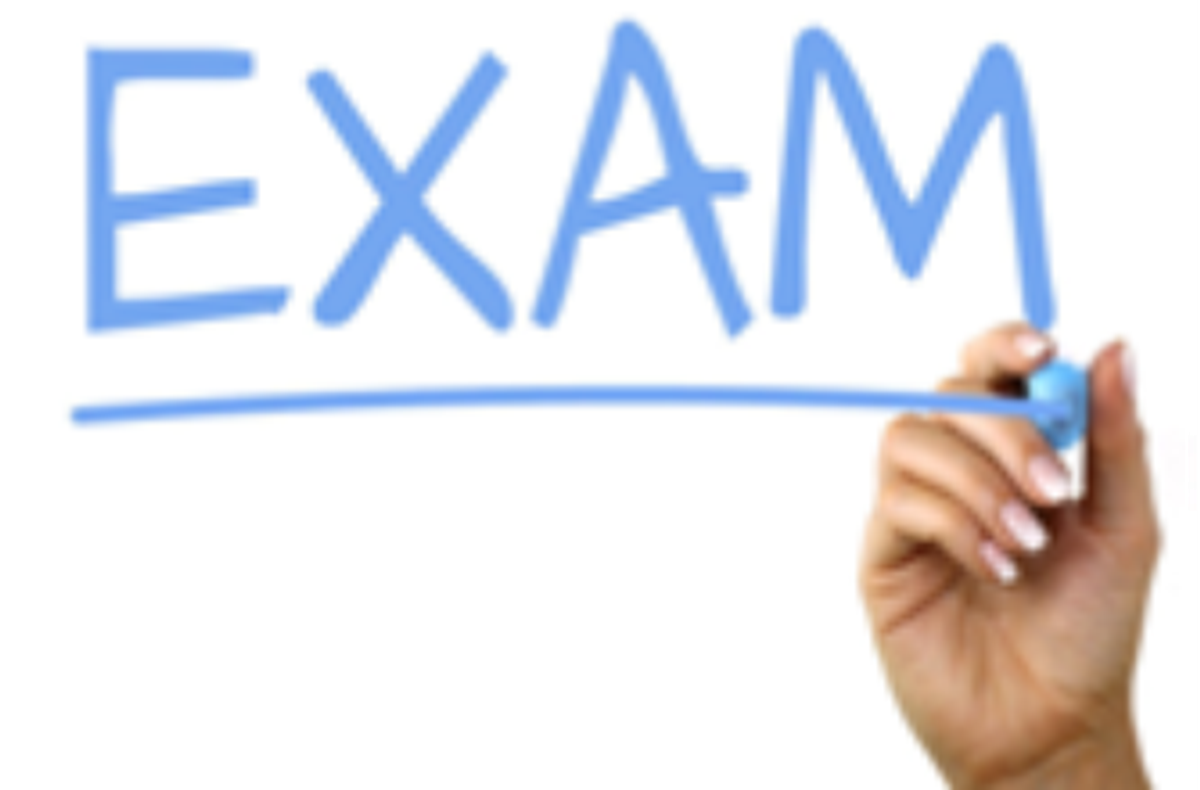9-12 Community News
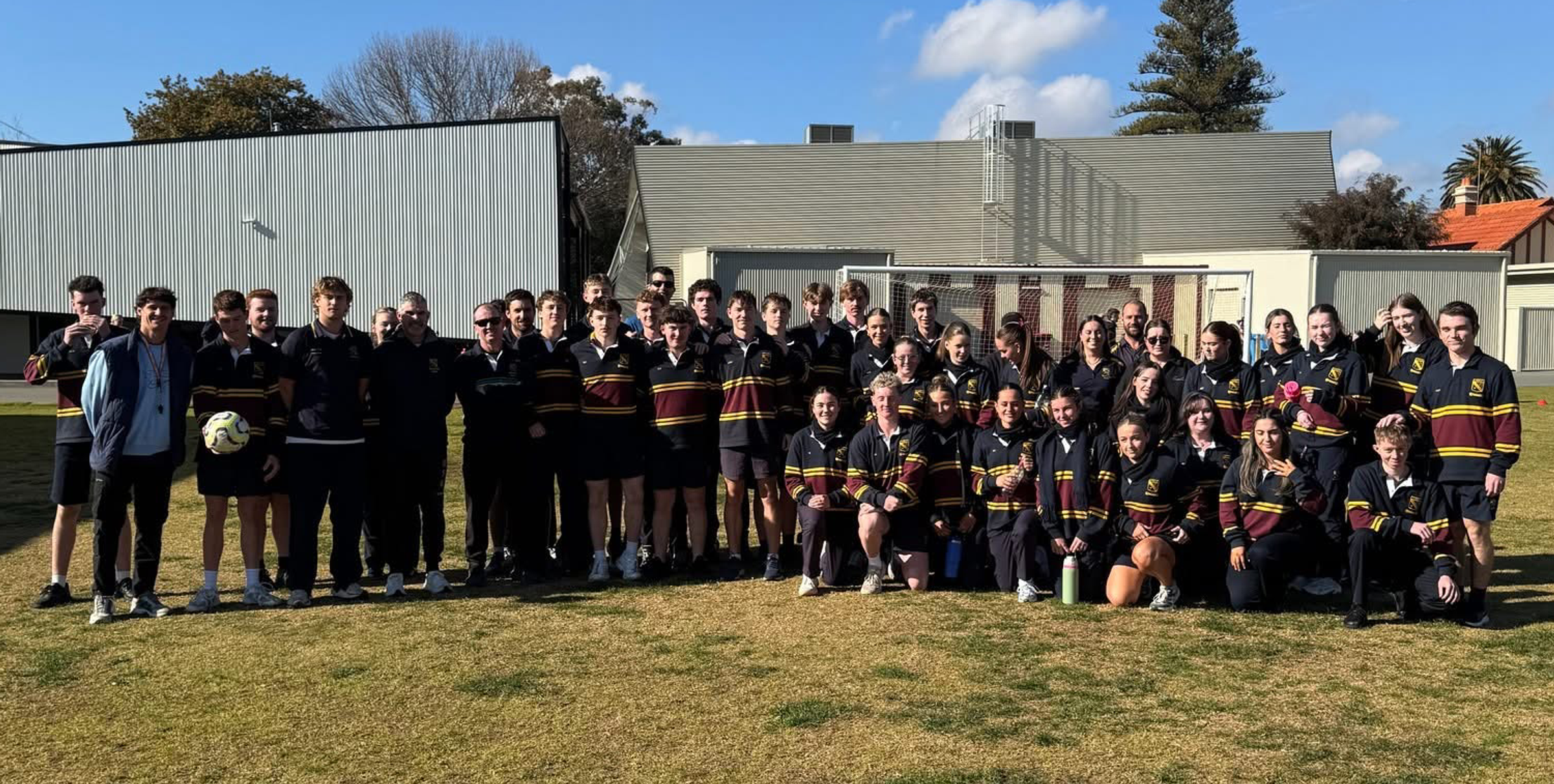
Welcome to the start of Term 3.
Students and staff in the 9-12 Community have returned with a positive attitude and enthusiasm as we commence Term 3. Despite the shorter term, it is certainly jam packed with lots to look forward to.
To round out our learning in Career Education last term, our Year 10s and 8s had the opportunity to take part in a Careers, Occupations and Pathways forum. The forum was made up of 11 panellist who provided students with valuable insights into the world of work and the pathways they undertook to be where they are today. Our panellists talked about the varied occupations they hold including Police Officer, Education Support, After School Care, Psychologist, Defence Force, Sports Coaching, Carpentry, Diesel Mechanic, Microbiologist/Public Health Officer and Aged Care.
The students had the opportunity to ask questions and hear from our guests about their chosen course of study during VCE and their experiences in higher education at University or TAFE. This was a valuable experience for our students who have just been through the subject selection process for 2026. It was great to welcome back alumni Liana Barbagallo, currently in her last year of her Teaching Degree and Constable Liam Scopelliti who is working at Vic Pol.
We would like to extend our gratitude and thanks to the following panellists:
Liana Barbagallo, Liam Scopelliti, Ben Napier, Steven George, Noah Downie, Tess Brookman, Darcy Walsh and our parent guests, David Starling, Sandi Brose, Kate Ranson and Stephanie Taylor.
As our Year 12 students begin the last semester of their secondary school years, they have taken the opportunity to visit a Tertiary Information Service (T.I.S.) session, where they were able to explore the range of career, tertiary and post-school pathway and employment opportunities that are available to them as they look beyond the end of their secondary education.
For those who are considering tertiary study, the recent Tertiary Information Service excursion provided insights into the many tertiary institutions and pathways available to students. We encourage all senior students to investigate the many tertiary institutions and career pathways that are available. Across Victoria, metropolitan and regional universities will be opening their doors for prospective students to visit on campus, as well as continuing their online presentations which have been developed over the last three years. Through the next few months, many universities will be holding Open Days. The link provided outlines the dates and times for a range of Open Days 2025 at the different institutions across Victoria.
We encourage all of our students in Years 11 and 12 to consider attending these days to explore the many opportunities available to them beyond secondary school.
With the end of year beginning to come into view for our Year 12s (and Year 11s completing a Unit 3/4 subject), we would like to present the information below to students and their families. This article presents a helpful guide for parents and caregivers in the lead up to the Unit 4 SACs and for examination preparation and revision. Exams, assessment tasks and assignments can be testing times for all students and parents alike. This article contains valuable information and helpful strategies designed to assist young people during these stressful times.
Information in this article is directly connected to the work we do with students through The Resilience Project, Success Integrated and Elevate.
We look forward to working in partnership with you, again, this semester and look forward to seeing you on-site for TA meetings and Subject Teacher conversations later in the term. As always, please feel free to contact your child/ren’s TA should you have any queries or concerns.
| Michelle Downie | Katelyn McIntyre | Sharon Darling | |||
| 9-12 Community Leader | 9-12 Community Leader | VCE Co-ordinator | |||
| Wellbeing & Community | Student Learning & | ||||
| Professional Practice |
Testing Times: How to deal with exam anxiety
Source: https://theparentswebsite.com.au/testing-times-how-to-deal-with-exam-anxiety/
Tests, exams, assessments – the mere mention of these to some teens can cause anxiety to escalate, writes Dr Deborah Trengove. She shares her strategies to help overcome the feeling during testing times.
From class spelling tests to Year 12 SACs, and everything in between, tests are part of school life. In an extended format, they are known as exams: timed assessments of learning and skills.
Over the years I have worked with many young people who have found tests and exams to be anxiety-producing experiences. Some have described going blank, forgetting all their hard-earned knowledge. Others get the shakes, their heart races or they become overwhelmed by the fear of bad grades. Some become too afraid to have a go, and others race through making simple mistakes.
These are all normal responses to a perceived threat, albeit a psychological one. Test anxiety can inhibit a student representing all they have learned, causing frustration and disappointment that they have not performed as well as they wanted to, creating worry for the next test or exam.
The anxiety response
It helps to understand the mechanism which is creating this anxiety response. It emanates from the amygdala, the alarm centre of our brains. The amygdala sets off a flight, fight or freeze reaction, depending on the situation, personality, beliefs and previous experiences or memories. The racing heart, going blank or sweaty palms are all normal bodily reactions activated in response to a threat. However, when in a test or exam, the threat is on a piece of paper and students cannot flee out of the room, freezing doesn’t help, and starting a fight is not an option! In this heightened state, the frontal lobe cannot perform its problem-solving functions, so questions are mis-read, answers forgotten, and mistakes made, increasing the cycle of stress and panic.
The fear
When probed about the perceived threat in a test, many young people describe their fear of not doing well, of making mistakes or of disappointing their parents and teachers. As they get older, this fear is exacerbated by the consequences of poor performance. I have often heard senior students explain that if they do badly on an exam, they could get a bad ATAR score. If they get a bad ATAR score, they won’t get into a good university. Then they won’t get a good job and their entire life will be on the scrap heap. No wonder they feel anxious – it feels like their whole future happiness and success is riding on every test!
Helpful strategies
There are many strategies that can help reduce test anxiety, at almost any age. I encourage parents to support their children and teenagers in building up their repertoire of test-taking skills, exploring which are most effective for each individual.
A healthy mindset
Many parents foster a ‘do your best’ approach to tests, which is a good basis to reduce excessive pressure. Others focus more on effort – and reassure their children that they are proud of them if they have tried their best, no matter the result. These mindsets help a young person to establish an internal goal, which promotes resilience under pressure. There may always be unexpected or tricky questions on a test or exam, but they have not let anyone down if they have applied themselves and tried their best.
Seeing tests as part of ongoing learning is also very powerful. The assessment – feedback – learning cycle underpins growth in skills and knowledge. If young people can see the bigger picture, it reduces a lot of anxiety about short-term performance. Learning will go on for many years, hopefully lifelong, with the satisfaction of improvement and mastery. It is important to teach young people that mistakes are part of learning, and learning is impossible without mistakes.
Breathe, breathe, breathe
If your heart is racing, the best way to slow it down is through moderating breathing. An easy technique is known as Box Breathing: breathe in, to the count of four, hold for the count of four, breathe out to the count of four, hold for the count of four. The four-count may be adapted to three, depending on what works best for the individual. Simply slowing down breathing works for some students, perhaps counting in to seven and out to 11.
A mindful approach
Mindfulness promotes focusing on what is happening in the present time, not getting caught up worrying about the future or ruminating about the past. I have found this approach to be very beneficial for many students – it encourages them to take one question at a time, to fully engage in the task and not to become overwhelmed by ideas such as ‘what if I make a mistake’. It helps to accept that the result cannot be controlled at the time of the test. What they can try to control is where their mind is… on the content of each question. If worrying thoughts arise, young people can learn to notice them without dwelling on them and return their attention to the task at hand. Doing regular mindfulness practice can support this approach – apps such as Smiling Mind, Buddhify, Calm Insight Timer and others are readily available.
Practical strategies
More formal study skills should be developed over time. Teachers are a fabulous resource and will often have the best advice for their students. A few basic strategies include:
• Be prepared and know what is involved in the test or exam
• Practice similar questions, to time, if appropriate to the age and subject
• Progressively develop test-taking techniques such as:
– Effective time allocation
– Overview of test sections
– Identifying key words
– Starting on a question in which they feel confident
A useful site with research-based tips and techniques can be found at www.learningscientists.org.
About the author: Dr Deborah Trengove is a former school psychologist and school wellbeing leader.
Deborah’s previous articles for The Parents Website include 10 tips to help your teen out of the procrastination trap, How parents can help kids make good friends and Lessons from lockdown: The good things we’ve discovered.
RELATED ARTICLE: HOW TO STUDY AND INCREASE YOUR MARKS, FROM ANDREW FULLER
VCE Coordinator
As the end of the year comes closer, students in Year 12 will be completing their VTAC applications guided by Mrs Anderson.
VCAA will undertake validation of student email addresses in Term 3 for the following:
students enrolled in one or more VCE or scored VCE VET Unit 3–4 sequence.
students enrolled in one or more VCE VM Unit 3–4 sequence.
Student email addresses are collected and used for the delivery of 2025 results and associated post-results services. Students with validated email addresses can apply for Statement of Marks and Statement of Study Score to be emailed directly to that email address following results release.
There will be 3 rounds of emails to students:
Round 1: Confirmation email to show registration of student’s email address for results delivery.
Round 2: A sample email to show students what they can expect in their end of year results email. The sample results included in the email will NOT be the student’s actual, real, or expected results.
Round 3: A final confirmation email.
Students should be made aware that the sender of these emails will appear as VASS Support.
Please advise students that if they do not receive an email from VCAA, they should check their ‘SPAM’ folders.
There is no action required by students when they receive any of these emails.
Email address validation takes place from the start of Term 3 as follows:
Round 1 email to students: 25th July
Round 2 email to students: 22nd August
Round 3 email to students: 20th October
The attached Exam Navigator and student timetables will be provided to the students undertaking a VCE or scored VCE VET Unit 3–4 sequence in Week 7.
https://vcaa.vic.edu.au/sites/default/files/2025-07/2025VCEExamsNavigator.pdf

